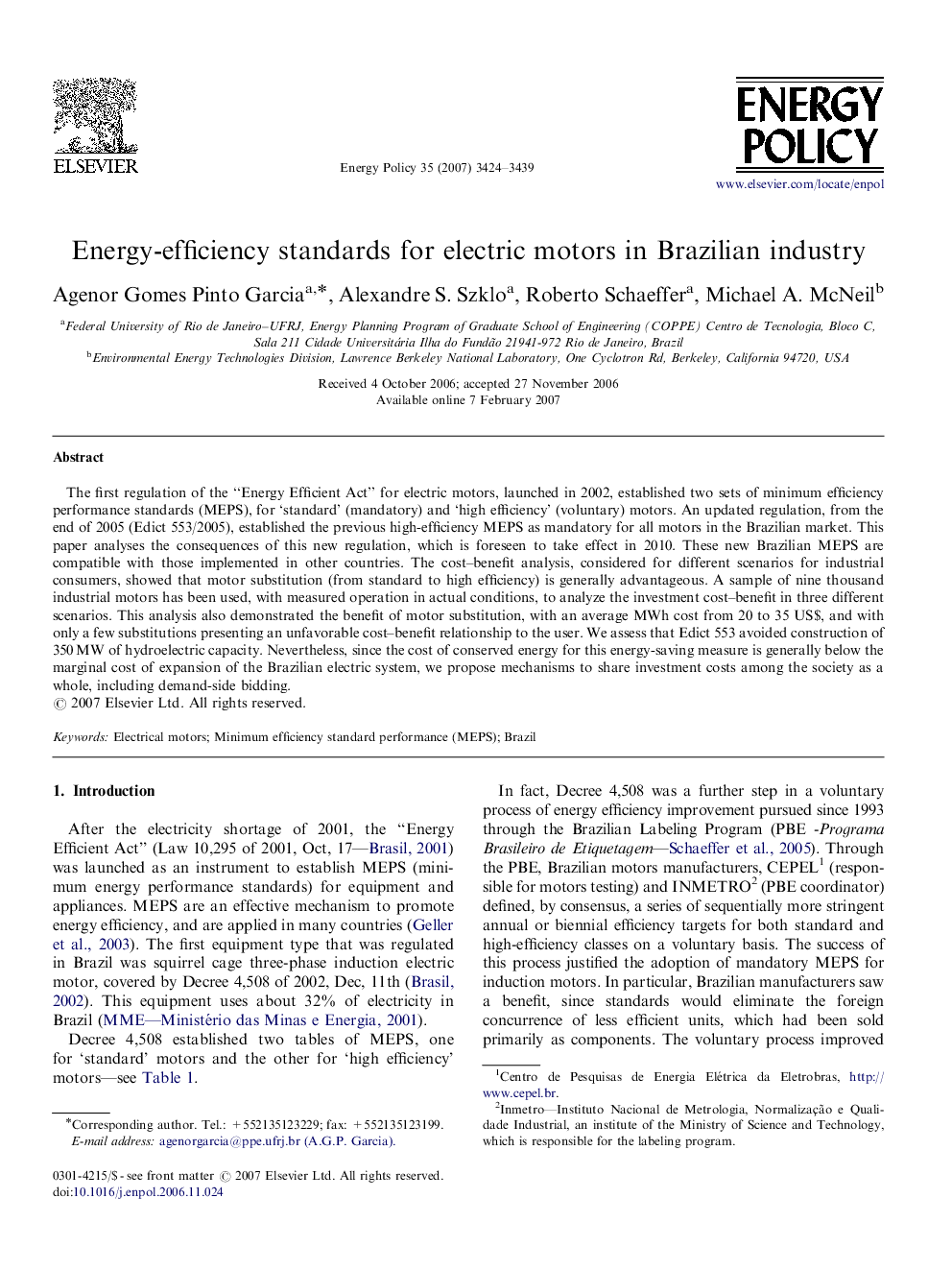| کد مقاله | کد نشریه | سال انتشار | مقاله انگلیسی | نسخه تمام متن |
|---|---|---|---|---|
| 994449 | 936088 | 2007 | 16 صفحه PDF | دانلود رایگان |

The first regulation of the “Energy Efficient Act” for electric motors, launched in 2002, established two sets of minimum efficiency performance standards (MEPS), for ‘standard’ (mandatory) and ‘high efficiency’ (voluntary) motors. An updated regulation, from the end of 2005 (Edict 553/2005), established the previous high-efficiency MEPS as mandatory for all motors in the Brazilian market. This paper analyses the consequences of this new regulation, which is foreseen to take effect in 2010. These new Brazilian MEPS are compatible with those implemented in other countries. The cost–benefit analysis, considered for different scenarios for industrial consumers, showed that motor substitution (from standard to high efficiency) is generally advantageous. A sample of nine thousand industrial motors has been used, with measured operation in actual conditions, to analyze the investment cost–benefit in three different scenarios. This analysis also demonstrated the benefit of motor substitution, with an average MWh cost from 20 to 35 US$, and with only a few substitutions presenting an unfavorable cost–benefit relationship to the user. We assess that Edict 553 avoided construction of 350 MW of hydroelectric capacity. Nevertheless, since the cost of conserved energy for this energy-saving measure is generally below the marginal cost of expansion of the Brazilian electric system, we propose mechanisms to share investment costs among the society as a whole, including demand-side bidding.
Journal: Energy Policy - Volume 35, Issue 6, June 2007, Pages 3424–3439